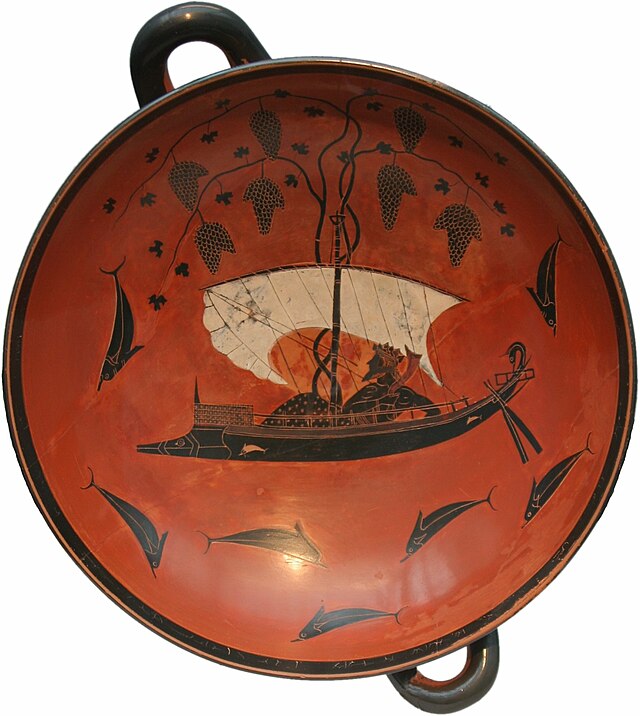Content deleted Content added
Tag: Reverted |
|||
Line 34: The ''Homeric Hymns'' mostly date to the [[Archaic Greece|archaic period]] of Greek history,{{Sfn|Price|1999|p=45}} though they often retell much older stories.{{sfn|Sowa|1984|pages=1–2}} The earliest of the hymns date to the seventh century BCE;{{refn|{{harvnb|Pearcy|1989|p=iv}}. For a more detailed chronological hypothesis for the early hymns, see {{harvnb|West|2012}}.}} most were probably composed between that century and the sixth century BCE,{{Sfn|Price|1999|p=45}} though the ''Hymn to Ares'' was composed considerably later and may date from as late as the fifth century CE.{{Sfnm|1a1=Pearcy|1y=1989|1p=iv|2a1=Faulkner|2y=2011b|2pp=15–16}} Although the individual hymns can rarely be dated with certainty, the longer poems (Hymns 2–5) are generally considered archaic in date.{{Sfn|Richardson|2003|p=xiii}} The earliest of the ''Homeric Hymns'' were composed in a time period when [[oral poetry]] was common in Greek culture.{{sfn|Athanassakis|2004|p=xvi}} It is unclear how far the hymns were composed orally, as opposed to with the use of writing, and scholars debate the degree of consistency or "fixity" likely to have existed between early versions of the hymns in performance.{{Sfn|Faulkner|2011b|pp=3–7}}{{efn|In 1962, James Notopoulos established that the longer hymns share characteristic features of oral poetry, such as the use of repeated formulae and certain [[Greek prosody|prosodic]] tendencies, with the Homeric epics. Notopoulos argued that this demonstrated that they were composed orally,{{sfn|Notopoulos|1962|pages=354, 368}} a view echoed by Norman Postlethwaite for the shorter hymns in 1979.{{sfn|Postlethwaite|1979|pages=16–17}} Other scholars, such as [[Geoffrey Kirk]], rejected the legitimacy of Notopoulos's approach and argued for written composition.{{sfnm|1a1=Faulkner|1y=2011b|1p=4|2a1=Kirk|2y=1966|2pp=153–174}} [[Richard Janko]] suggests that the earlier poems may initially have been composed orally, but dictated by rhapsodes for writing at a relatively early stage in their history.{{sfn|Janko|2007|pages=40–41}}}} The debate is clouded by the impossibility of determining for certain whether a poem with characteristic features of oral poetry was in fact composed orally, or composed using writing but in imitation of an oral-poetic style.{{sfnm|1a1=Janko|1y=2007|1p=40|2a1=Faulkner|2y=2011b|2pp=4–5}} Modern scholarship tends to avoid a sharp distinction between oral and written composition, seeing the poems as traditional texts originating in a strongly oral culture.{{sfnm|1a1=Sowa|1y=1984|1pp=1–2|2a1=Foley|2y=1997|2pp=163–164|3a1=Faulkner|3y=2011b|3p=4}} The name "Homeric Hymns" derives from the attribution, in antiquity, of the hymns to [[Homer]], then believed to be the poet of the ''[[Iliad]]'' and ''[[Odyssey]]''.{{sfn|Richardson|2003|p=vii}} The ''Hymn to Apollo'' was attributed to Homer by [[Pindar]] and [[Thucydides]], who wrote around the beginning and the end of the fifth century BCE respectively.{{Refn|{{harvnb|Bing|2009|p=34}}; [[Thucydides]] 3.102; [[Pindar]], ''Paean'' 7b. For Thucydides's dates, see {{harvnb|Canfora|2006}}; for those of Pindar, see {{harvnb|Eisenfeld|2022|pages=18–19}}.}} This attribution may have reflected the high esteem in which the hymns were held, as well as their stylistic similarities with the Homeric poems.{{sfn|Richardson|2003|p=vii}} The dialect of the hymns, [[Homeric Greek|an artificial literary language]] The attribution to Homer was sometimes questioned in antiquity, such as by the rhetorician [[Athenaeus]], who expressed his doubts about it around 200 CE.{{sfn|Richardson|2003|p=xii}} Other hypotheses in ancient times included the belief that the ''Hymn to Apollo'' was the work of [[Cynaethus|Kynathios of Chios]], one of the [[Homeridae]], a circle of poets claiming descent from Homer.{{Sfn|Richardson|2003|p=xiii}} Some [[Ancient accounts of Homer|ancient biographies of Homer]] denied his authorship of the ''Homeric Hymns'', and the hymns' comparative absence, relative to the ''Iliad'' and ''Odyssey'', from the work of scholars based in [[Hellenistic period|Hellenistic]] (323–30 BCE) [[Alexandria]] may suggest that they were no longer considered to be his work by this period.{{Sfn|Richardson|2010|p=1}} However, few direct statements denying Homer's authorship of the hymns survive from antiquity: in the second century CE, the Greek geographer [[Pausanias (geographer)|Pausanias]] maintained their attribution to Homer.{{Sfn|Peirano|2012|p=70}} | |||
 Article Images
Article Images